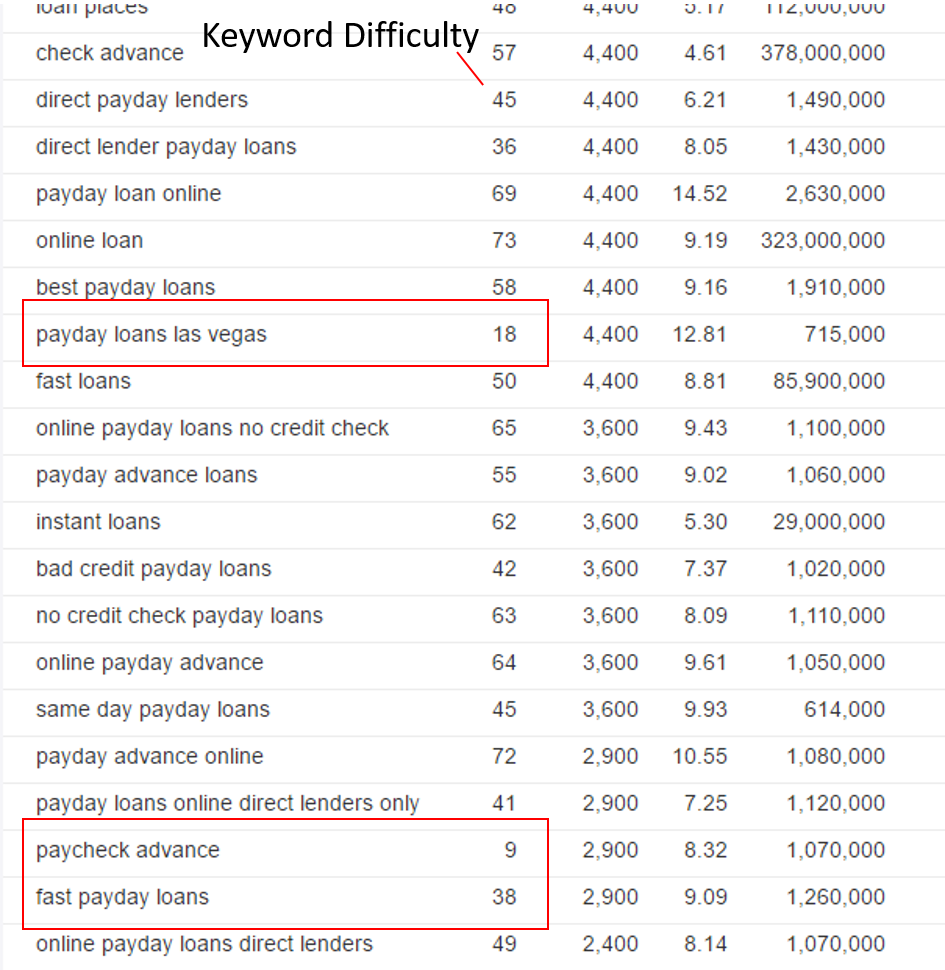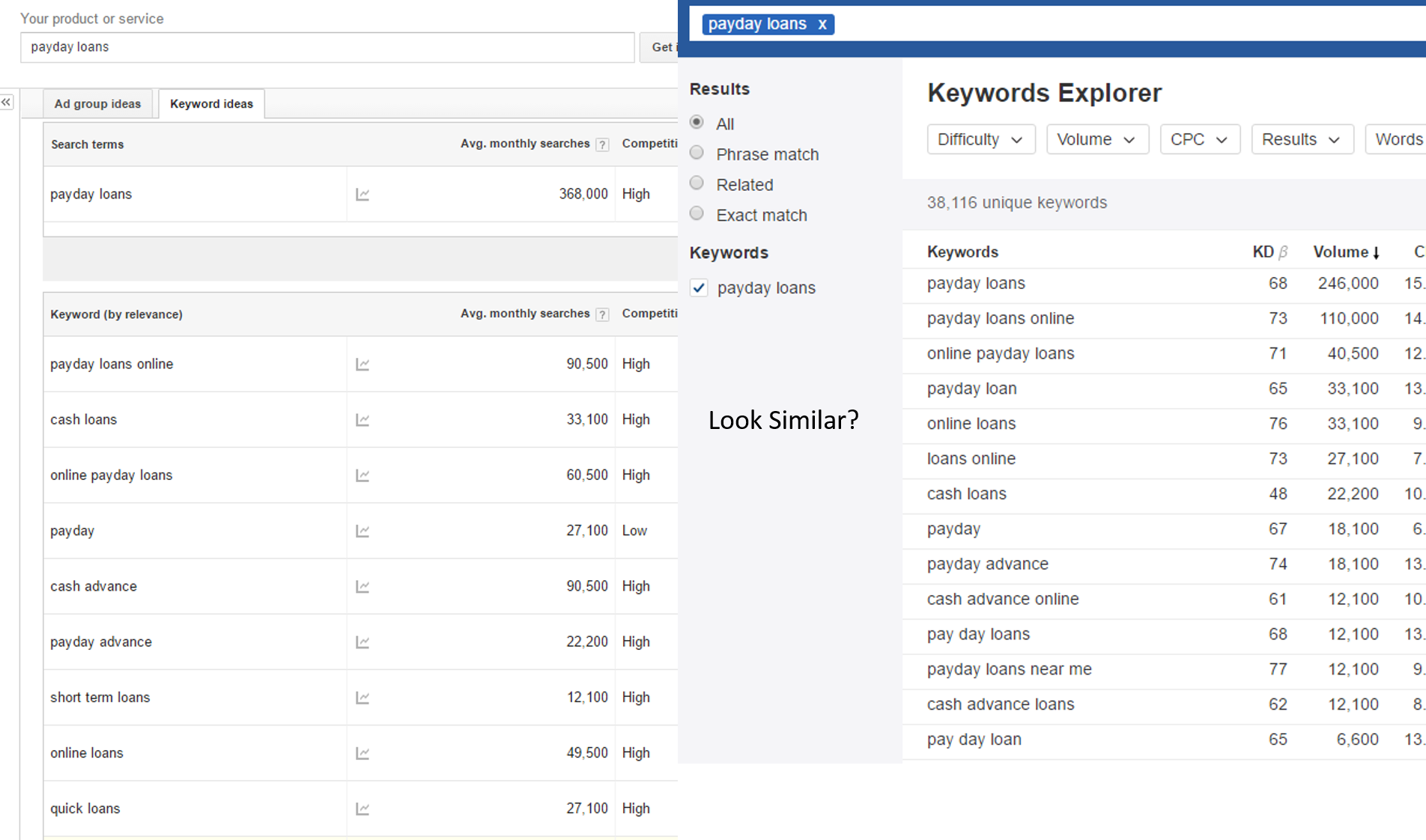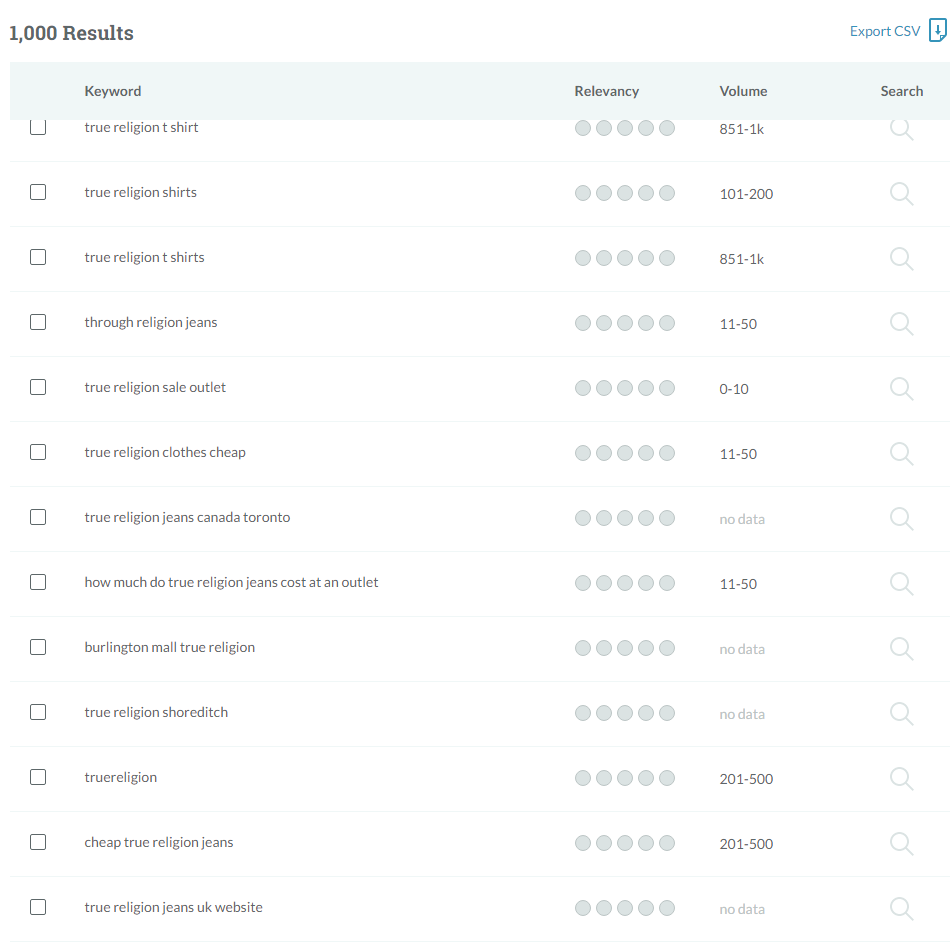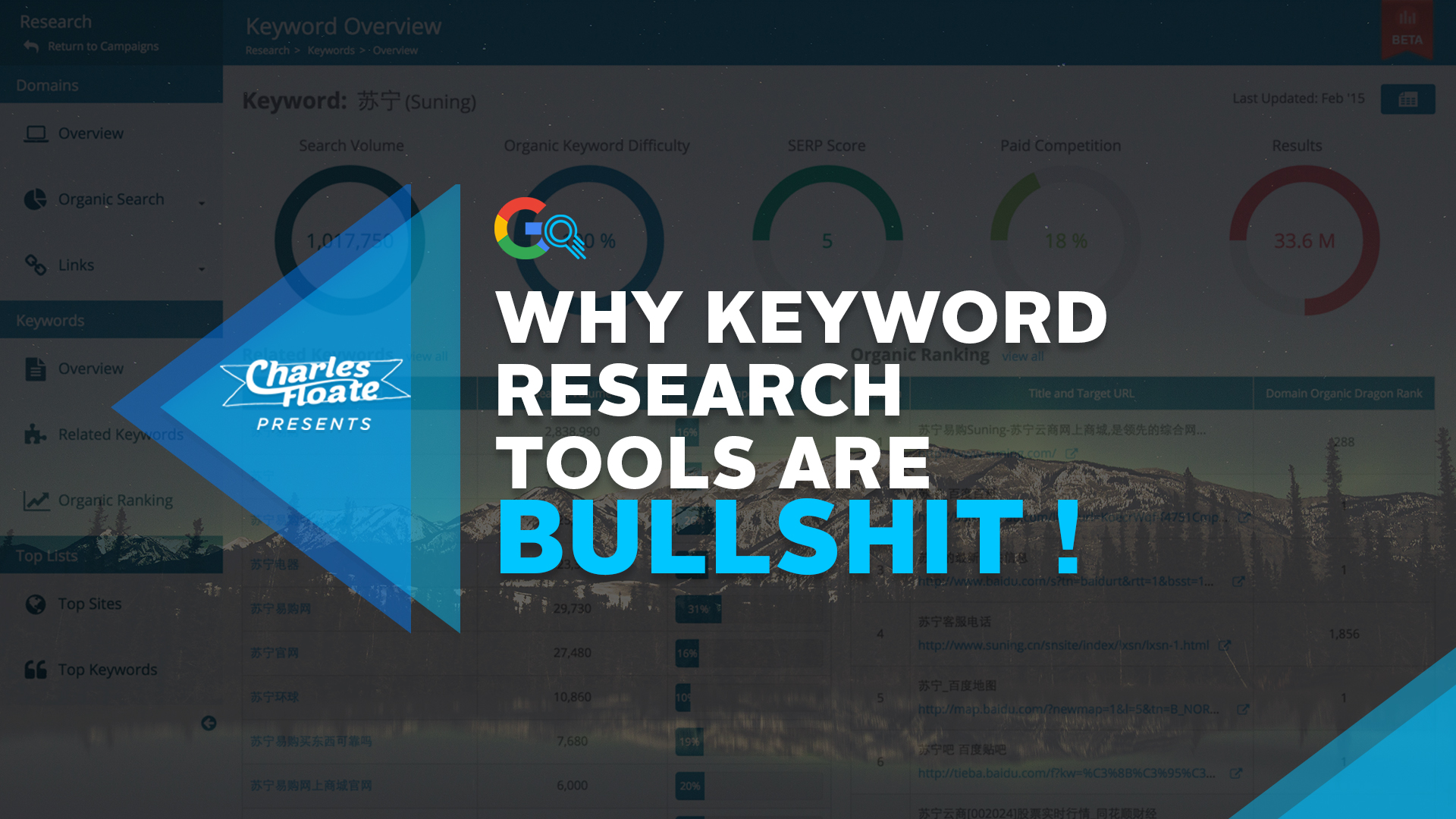It all started with a debate on the subreddit /r/bigseo, which was someone asking which was the best keyword research tool.. My comment managed to get the top answer and I felt I still hadn’t properly managed to explain myself. So I thought I’d take it one step further in this post.
Table of Contents
Introduction
I probably should of voiced my concerns on this at an earlier stage, because too many people have spent too much money on bullshit that isn’t going to help them. I’ve been emailed by atleast 3 different companies wanting me to promote their keyword research tool, and every single time.. I’ve been unequivocally unimpressed.
There’s quite a few problems with keyword research tools, and I’ll list them here.. However, if you want to learn how I do keyword research (using certain tools, but not designated as keyword research tools) then read my post –
Anyway, without further ado.. Let’s get into it.
Problem #1 – The Difficulty Ratings
Inherently, a machine (not without Google level algo’s) won’t be able to understand the truth strength of a site and page in the SERPs. It could never gauge whether a site is a complete authority within a niche, nor take into consideration a LOT of things SEOs should be taking into consideration when moving into a niche.
Obviously, this won’t matter if you’re doing bulk keyword research for really small niches, but anything over 700 monthly searches and it can start to trip up – Rating a SERP with competitiveness levels (using tools like Moz & LTP) in the high 20s, low 30s (out of 100) when the top 3 listings are a 3.8k word Wikipedia page, a company site for a real authority in the niche and 2 Amazon listings.. If an SEO was to physically look at that SERP, he’d tell you it’s a difficult SERP to rank in – Wikipedia being one of the biggest authorities on the net, with a huge highly formatted post and a 200+ referring domain backlink profile to that page alone. The funny thing is, I bet a good number of those links are people linking to it from their PBNs with the “authority onsite linking” tactic that so many PBN owners do now-a-days.
Similar to my point on the subreddit where the keyword “coca cola” was rated 68 by Moz and an even lower score by LTP, when in reality it’s high unlikely you’d ever be able to rank for that term, and even if you did.. It’d be very short lived.
Tim from Ahrefs replied, bragging about the Ahrefs keyword tool scoring the term a 95. However a quick search against various other terms would reveal it to still be extremely volatile –

You’ll see several keywords on here with extremely low keyword difficulties, granted the majority have fairly ok ratings (however I’d be giving keywords like “instant loans”, “check advance” and “fast loans” a lot higher rating than a medium level keyword. Another point I found out, is that the keyword list you get back from Ahrefs is identical to that you find in keyword planer, just jumbled in a different order.. So it’s really just a glorified GKP scraper.

I exported both spreadsheets and couldn’t find any differences.
Problem #2 – Not Understanding ROI
I always find it really interesting how these tools sort the keyword results they spit out for you. Some will (at first) sort it by the search volume, some will sort it by the difficulty, some will give you what they think are the best keywords out there. The latter, is normally when you see the worst results.
None of the tools today have any sort of artificial intelligence which allows it to know if a keyword would be more profitable or not.
As an example, the keyword “true religion jeans” (which is a designer jeans company) isn’t going to be worth much as a keyword opportunity to you, because it’s going to be exceptionally difficult to rank for and even if you did rank, the official site listing would always take the majority of the traffic share and the time and resources you put into ranking for it are wasted. However change the keyword to “true religion jeans for men” and you get a totally different set of results, minus the 7 pack you’d normally get on the actual brand term – If you take this one step further and go for keywords such as “white true religion jeans” or “black true religion jeans” you get opportunities to create targeted pages and have a lot higher chance of getting ROI from them than the branded term.
When I ran the main branded keyword through Ahrefs, LTP and Moz’s keyword tool, the entire first set of results was made up of brand related keywords which would be very hard to rank for.. The first oppurtunity I saw on Ahrefs was on the 2nd page.. On LTP it was it’s 54th idea and Moz came in last with an assortment of no search volume, pretty shitty keywords –

These results are from the first 30 on the return page.. “burlington mall true religion” with no data seems like a fantastic keyword to go for, that’s totally why it should be the 22nd recommended keyword on their list.
One bonus I will give to Moz is that there keyword opportunity score is a fantastic idea.. Essentially they give you a score (of 0 – 100) of what they think the opportunity of getting traffic would be if you ranked for a keyword. However, giving “coca cola” an opportunity rating of 45 is probably not the best rating, and unfortunately across the board the opportunity rating has been way too generous for my liking. Hopefully in the coming {weeks|months|years|decades} Moz can step-up their game both in the results they provide and the scores they assign to different keywords.
Problem #3 – Relevance
Relevancy has been a hot topic lately, with people getting very paranoid that their link profiles or site isn’t relevant enough for the keywords they want to go after. So you’d think keyword tools main goal would be to be as relevant as possible, well let’s think again.
I’ll be the first to admit that tools have gotten better at showcasing more relevant keywords, but they still have a lot of downfalls on the way – I remember back in 2010 I did a similar search to my true religion one above in keyword planner (before it was named keyword planner), and it spewed back a bunch of unrelated religion-based results, when I’d clearly put “jeans” in the keyword I wanted to get ideas for.
More recent examples would be another machine learning problem. Keyword tools don’t have any artificial learning going on in the background, they wouldn’t be able to tell the difference between a chip in your phone and a chip in your doritos bag. This translates a lot into more complex industries, things like technology, science and healthcare become very difficult to find keywords for because of the way those industries word things.
As a fantastic example, SEO is an industry that has almost it’s own dictionary of terms and phrases that can be linked to any number of other meanings or industries.
We take the terms black and white hat from the cyber security industry. We have words like “silo”, “onpage”, “link” and more that can easily get confused with a lot of other industries and when I’ve looked for keywords for blog posts like this one, tools have gotten very confused and mixed them up.
“Silo Structure” to an SEO has a whole different meaning than a farmer. This became blatantly obvious when I tried to do keyword research for it and it started spewing back results based on building silos in real life, rather than on your website…
Final Thoughts
I know a lot of people are going to say I’m attacking people or companies in this post, but that’s not true at all.. I’m targeting everyone in this post, I haven’t just name dropped a single company, because every tool I’ve used hasn’t been worth it. The only tools I’d recommend for doing keyword research is keyword planner to grab the search volume, competitor research tools like SEMRush & Ahrefs to find keywords your competitors are generating traffic from and suggestion based tools like UberSuggest..
Every other tool simply isn’t worth the coins you drop on them for your monthly tool budgets. If you really don’t want to spend money, then I’d suggest using a mixture of UberSuggest & Keyword Planner with your own knowledge and using an icognito browser to lookup the competition – No tool is better than a good SEOs brain.
Don’t forget to join my email newsletter and get a free 7 day SEO course. I’d also love to hear all your guys (and girls) experiences with keyword research tools and your methods for finding great keywords in the comments section below!
P.S.
As I said in the introduction to this post, if you want to learn how to do keyword research properly then you can follow my guide here.








